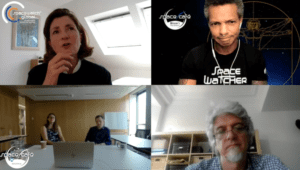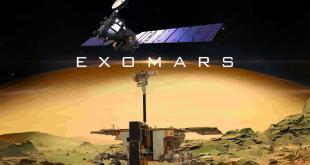 The second session of the Space Café Scotland by Angela Mathis, on Thursday 1st July 2021, explores how Scotland plans ‘to lead by example’ and has in its sights the competitive advantage of developing highly differentiating technologies and services for an end-to-end Sustainable New Space Industry.
The second session of the Space Café Scotland by Angela Mathis, on Thursday 1st July 2021, explores how Scotland plans ‘to lead by example’ and has in its sights the competitive advantage of developing highly differentiating technologies and services for an end-to-end Sustainable New Space Industry.
Our guests are:
- Kirstina Tamane, Space & Satellites Business Development Lead at the University of Edinburgh, and member of the Scottish Space Leadership Council (SSLC),
- Daniel Smith, Founder at AstroAgency, Co-Chair of the Scottish Space Leadership Council – SSL,
- Dr Moriba Jah, Associate Professor, Aerospace Engineering and Engineering Mechanics, The University of Texas at Austin – Leading Space Environmentalist
- Dr Massimiliano (Mx) Vasile, Director of the Aerospace Centre of Excellence, Strathclyde Space Institute, University of Strathclyde and Lead Academic of the STARDUST – R programme.
With COP26 scheduled to take place in Glasgow, Scotland later this year Kristina and Daniel share the aims, learning and future plans of the Scottish Space Leadership Council initiative, ‘Sustainable Space Challenges’ campaign – describing their campaign as a bold, ambitious and differentiating roadmap for growing an environmentally responsible Space economy in Scotland (UK).
Our guests agree that the biggest challenge everyone faces is how to reconcile business, economy, science in order to assure responsible Space activity and sustainable use of the finite Space environment around our planet.
Governance is a big topic and the potential role of the new ESA Sustainable Space Charter to bring Space Nations around the world together, hopefully including Scotland and the UK.
Scotland and the UK boast of cube-sats, launchers, spaceports – and begin to recognise that Space Domain Awareness and Space Situational Awareness capabilities are essential to cope with the forecast exponential growth in space activities over the next 5 years.
We learn that companies can already sign up to a voluntary ‘sustainable space accreditation’ mechanism with the new SSR – Space Sustainability Rating and how this will foster much-needed end-to-end supply-chain responsibility, transparency, and accountability.
Mx Vasile explains that the advent of the private Space era in the last 10 years requires us to design responsibly. Mx touches on concepts like a design for demise, the potential impact and risks of de-orbiting ever more space junk, and he questions if the current casualty risk model (10 -4) will be still relevant given the increasing number of space objects in orbit.
And what of the consequences of burn-up gases generated as objects de-orbit and re-enter the Earth’s atmosphere? Should we avoid single-use satellites,? …even the potential to re-purpose spacecraft components in space, …yep, you’ve seen the movie ?!!!
Moriba Jah stresses again the urgent need for timely data submissions to the UN and accurate registry of ‘good’ space object data – His message,
“It needs to be within 3 months from launch, not after 3 years !”
We’ve experienced and reacted well to historical surprises like the effect of CFCs destroying the ozone – explained clearly in ‘The Shattered Sky’. Plastics are now pervasively in the sea and in every food chain across the planet. As a species, we don’t have a track record of acting with due caution as we innovate ….nor, at times, with full transparency.
So, what are the potential unexpected negative consequences of all this Space activity? The industry will not invest in this research ….so Academia must be funded to do so.
And… what is the ‘canary in the mine’ if we want to avoid making a big, irreversible mess of Space? How do we establish early-warning signals that unexpected things are going wrong in Space caused by human activity?
Mx hints, “there are already many dead canaries” where the Space economy has taken priority to date…listen up as he suggests that we should keep a careful watch over the impact of increased energy generation and electromagnetic pollution in the Space environment.
It’s a long review, folks…there is a lot to capture….we hope you find it worth watching.
Our next Space Café Scotland will explore Space as a Force for Social Mobility and Next Generation Motivation on Thursday, 2nd September 2021 at 15:00 BST.
To listen to Space Café Scotland’s insights, you can watch the full program here:





